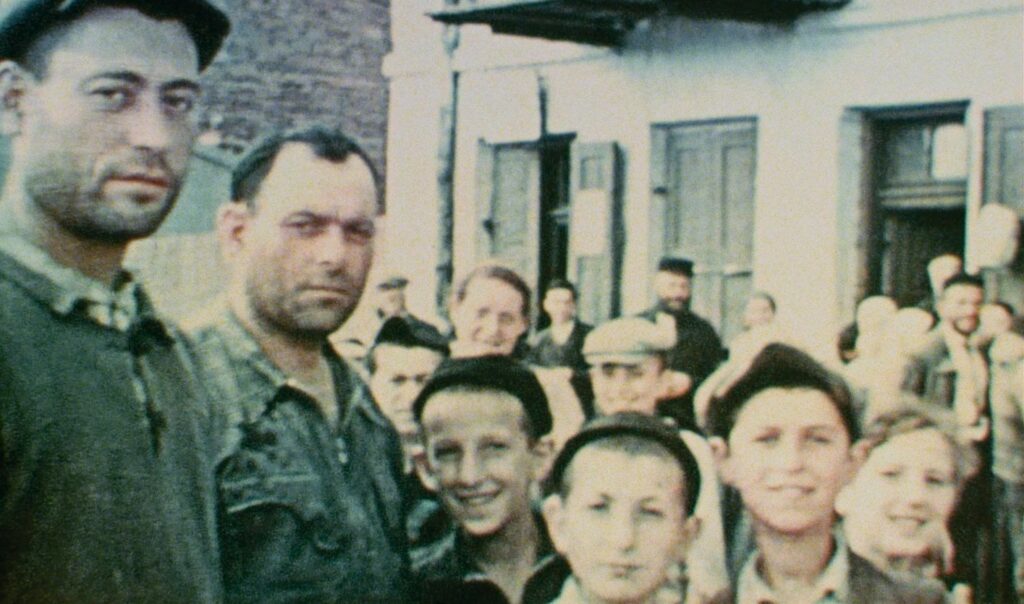Bianca Stigter is a historian and cultural critic. She made the short film essays “Three Minutes – Thirteen Minutes – Thirty Minutes” and “I Kiss This Letter – Farewell Letters from Amsterdammers.” She served as associate producer on “12 Years a Slave” and “Widows.” In 2019 she published the book “Atlas of an Occupied City: Amsterdam 1940-1945.”
“Three Minutes: A Lengthening” will start screening at the 2021 DOC NYC Film Festival on November 10. The fest runs from November 10-28.
W&H: Describe the film for us in your own words.
BS: “Three Minutes: A Lengthening” examines a short home movie shot in 1938 in a Jewish town in Poland and delays its ending. It is an essay about film, history, and memory. The three minutes of footage, mostly in color, are the only moving images left of the Jewish inhabitants of Nasielsk before the Holocaust. The existing three minutes are examined to unravel the stories hidden in the celluloid.
The film was found by the grandson of the filmmaker, writer Glenn Kurtz, just before it was lost forever due to damage and decay. In the film you also hear Maurice Chandler, one of the few survivors, who appears in the film as a boy.
W&H: What drew you to this story?
BS: The footage shot by David Kurtz in 1938 is so vivid, yet so short. While watching it for the first time, I wondered: could you make those three minutes last longer to keep the past in the present? Then I tried to examine the footage in the fullest detail, as an archeological artifact, to see what the celluloid would yield to viewers almost a century later. What music did they hear, what words did they speak?
W&H: What do you want people to think about after they watch the film?
BS: I would like to leave that up to them.
W&H: What was the biggest challenge in making the film?
BS: The only thing you see in the film is the footage by David Kurtz, so the challenge was to show it in different ways, to edit it in such a rhythm that you can discover something new every time, and to really pay attention to detail. It is a kind of slow watching, to stop and give these people your full attention.
W&H: How did you get your film funded? Share some insights into how you got the film made.
BS: The film was supported by the Dutch Film Fund and The Amsterdam Fund for the Arts.
W&H: What inspired you to become a filmmaker?
BS: The footage by David Kurtz. I am a historian by trade and usually write. But this idea only worked as a film, so I had to take the leap and try to make one.
W&H: What’s the best and worst advice you’ve received?
BS: The best: Be bold.
The worst: You can’t do that.
W&H: What advice do you have for other women directors?
BS: Be bold.
W&H: Name your favorite woman-directed film and why.
BS: “The House Is Black” by Iranian poet Forough Farrokhzad. It is a short film from 1962 about a leper colony in Iran. Delicately and boldly, she shows people that were forced to be invisible.
W&H: How are you adjusting to life during the COVID-19 pandemic? Are you keeping creative, and if so, how?
BS: The pandemic made a lot of things harder, but writing is something you can always do.
W&H: The film industry has a long history of underrepresenting people of color onscreen and behind the scenes and reinforcing — and creating — negative stereotypes. What actions do you think need to be taken to make the doc world more inclusive?
BS: Things are changing, but they change too slow. More opportunities need to be created — more doors opened or forced to open.







